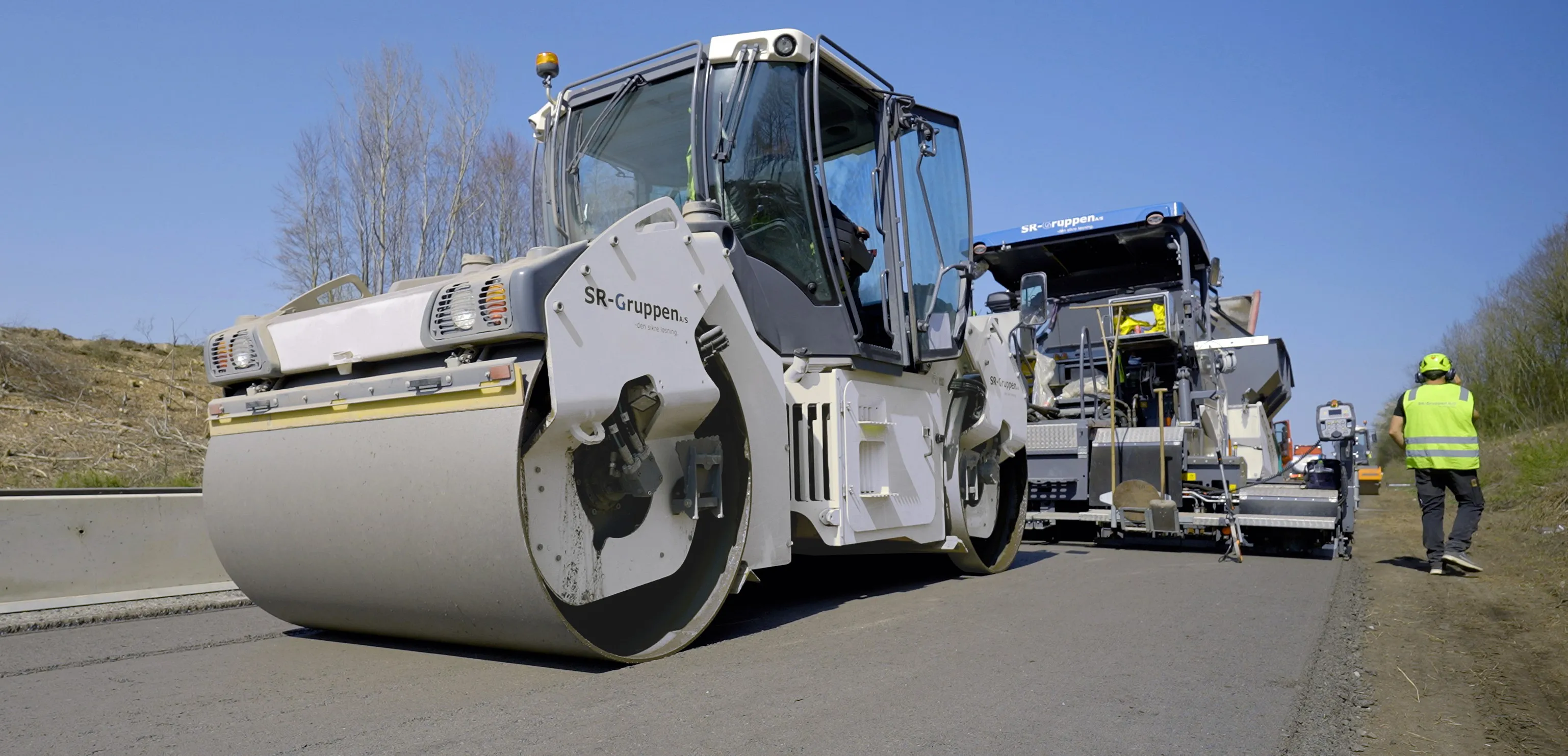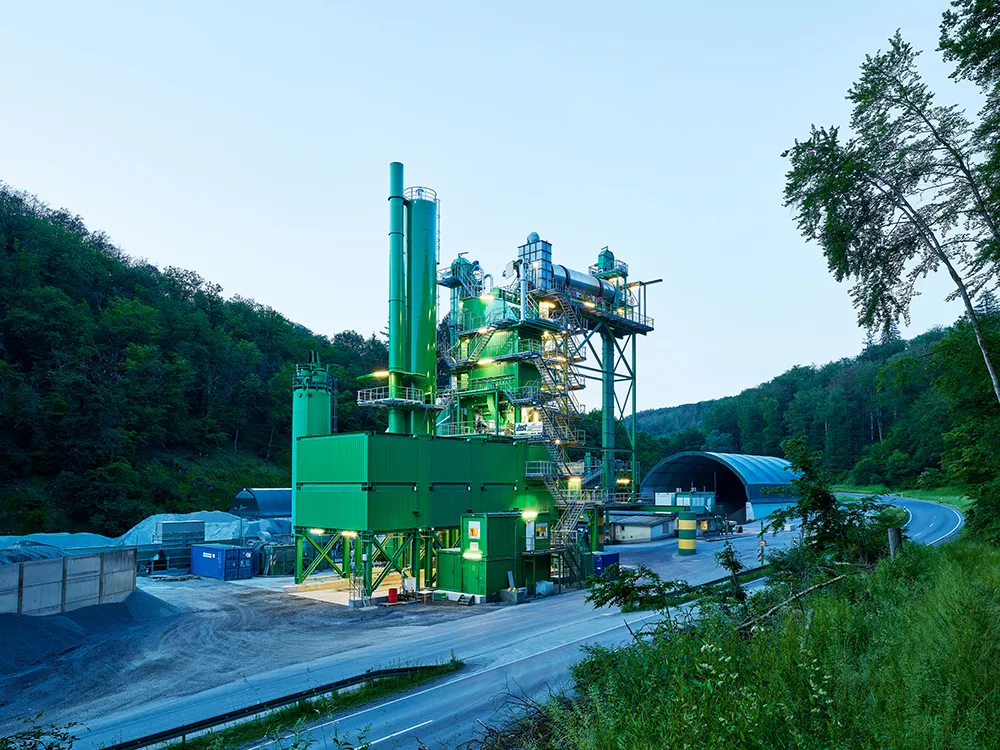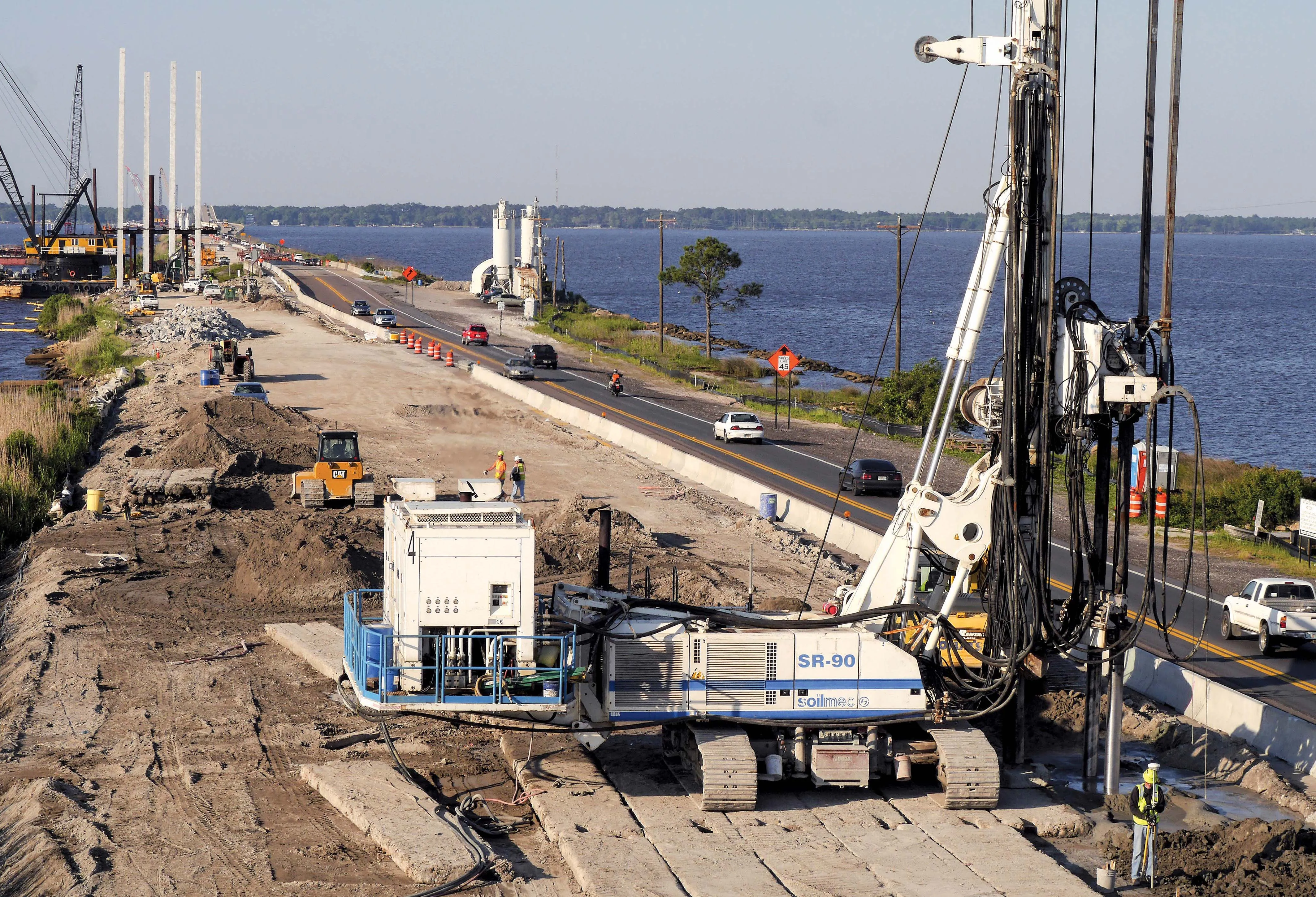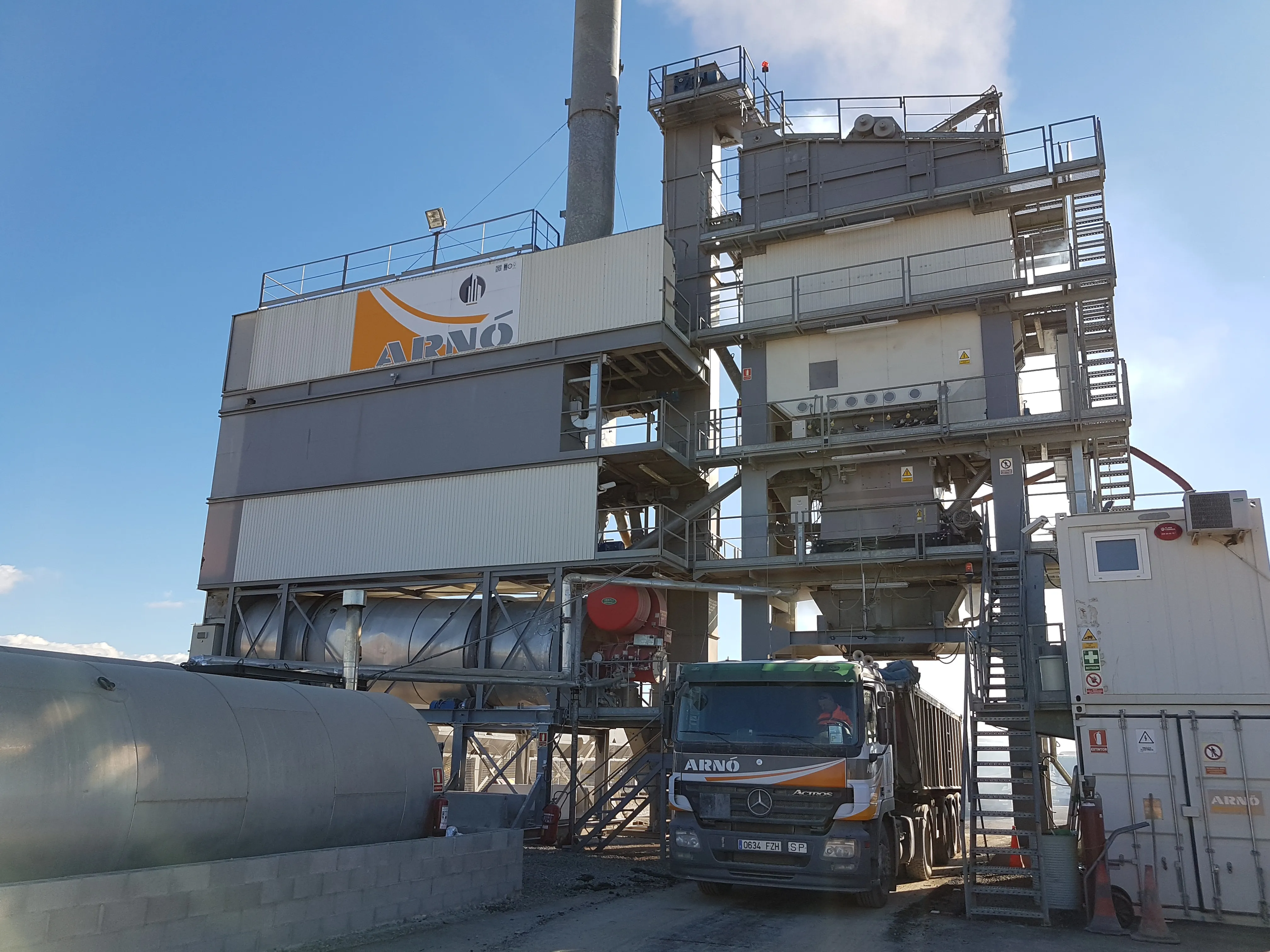
The project was managed by the local contractor SR-Gruppen A/S, which used equipment from the Wirtgen Group to deliver the work in 50% of the time and a CO₂ reduction of over 50%.
A KMA 240i mobile cold recycling plant from Wirtgen played a central role for the job, with the contractor also utilising Wirtgen milling machines as well as Vögele paving equipment and Hamm compaction rollers.
The client had specified cold recycling of the road surface material as this offers a sustainable construction method for structural rehabilitation. The work had to be carried out to a tight schedule so efficient production was crucial. “We produced up to 300tonnes of cold mix/hour with the KMA 240i,” said Morten Wold, divisional manager for the contractor.
The E 45 highway was milled at widths varying from 3.15-5.9m and a depth of 280mm using Wirtgen W 210i and W 250i milling machines. The milled material was transported to the KMA 240i mixing plant located nearby, where it was recycled into cold mix. Because the cold mixing plant is mobile, the contractor was able to keep the treatment operation close to the asphalt removal and paving location, cutting material transport. This method reduced transport requirements by around 70%, cutting CO₂ emissions for the construction project.
To verify the quality of the finish, tests were carried out on the reclaimed asphalt pavement (RAP) before construction commenced.
The mix was loaded into an impact crusher and reduced to a size of 0–32mm, loaded by wheel loader into the KMA 240i’s large-capacity receiving hopper, and fed into the twin-shaft continuous mixer. The machine used featured twin feed augers with a double-trough system as well as an accurate weighing system that ensured the necessary quantities of lime and cement binding agent additives were used. The continuous weighing system ensured that the additives were precisely dosed. The foamed bitumen was added using the microprocessor-controlled dosing system and the mix included 2.2% foamed bitumen, 6% lime and 0.8% cement.
A total of 51,000tonnes of the stabilised bituminous cold mix was used for the project and was loaded into trucks and transported to the jobsite. Graders and Hamm rollers were used to prepared the frost protection layer beneath the milled off asphalt pavement as a roadway for pavers and trucks to operate on. A MT 3000-2i mobile feeder from Vögele was employed to ensure a steady material flow on the site.
As no road closures were permitted, the material transport logistics were challenging. However, the MT 3000-2i provided the necessary versatility to rehabilitate two lanes of highway, a total of 20.45m-wide.
A Vögele SUPER 1900-3i paver was used to lay the material true to grade and slope, providing a 200mm base layer of cold mix as the foundation for the highway. Care was taken during compaction, using a 12tonne Hamm HD 120i tandem roller carrying out the necessary compaction duties followed by a Hamm GRW 280i pneumatic-tyre roller, to deliver the final surface treatment.
After only two days, the contractor was able to lay down a binder course and a surface layer with a thickness of 80mm. For this, the firm chose a robust asphalt grade modified with polymers that suited the requirements of the route, which carries heavy traffic and a high percentage of large trucks. The Vögele SUPER 1900-3i and MT 3000-2i were also used to lay the binder course and wearing course, with the Hamm tandem roller carrying out the main compaction work and the Hamm rubber tyre rollers handling the finishing duties. Using this method delivered a significant reduction in fuel consumption, transport costs, CO2 emissions and also cut the time needed for the work by 50%.








